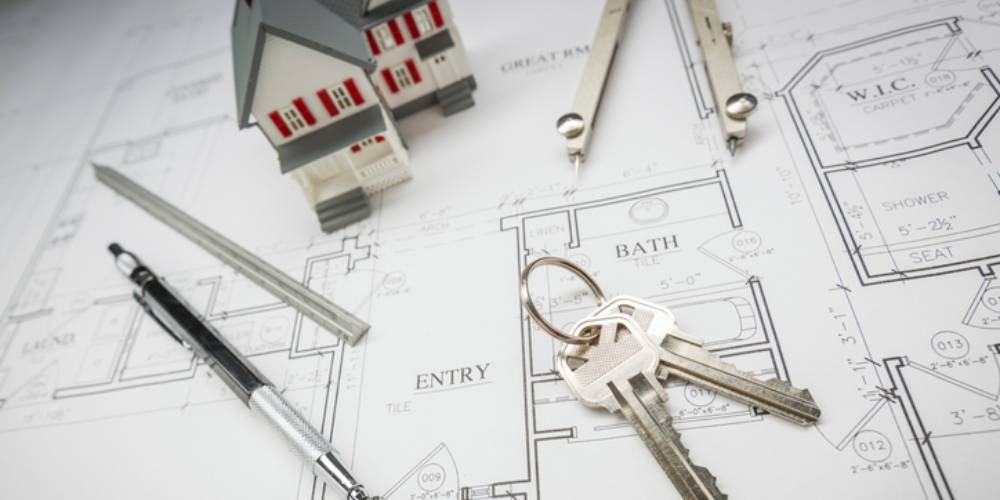
In the realm of custom home construction, there is a growing emphasis on integrating eco-friendly building practices. Homeowners are increasingly seeking residences that not only reflect their unique preferences and lifestyles but also prioritize sustainability and environmental consciousness. In this article, we delve into the world of green living and explore the eco-friendly building practices that skilled custom home builders employ to create luxurious yet environmentally responsible homes.
The Role of the Custom Home Builder
Custom home builders play a pivotal role in the design and construction of homes tailored to the specific needs and desires of their clients. When it comes to integrating eco-friendly practices, these builders can implement sustainable features and technologies that contribute to energy efficiency, reduce environmental impact, and create homes that are in harmony with their surroundings.
Key Eco-Friendly Building Practices
1. Energy-Efficient Design:
Optimized Orientation: Skilled custom home builders consider the orientation of the home to maximize natural light and minimize energy consumption. Proper positioning allows for passive solar heating in winter and shading in summer.
High-Quality Insulation: Utilizing advanced insulation materials ensures that the home retains heat in the winter and remains cool in the summer, reducing the need for excessive heating or air conditioning.
2. Renewable Energy Sources:
Solar Panels: Custom homes can be equipped with solar panels to harness the power of the sun for electricity generation. This sustainable energy source not only reduces the home’s carbon footprint but also offers long-term cost savings.
Geothermal Systems: Implementing geothermal heating and cooling systems taps into the Earth’s natural temperature to regulate indoor climate, providing an energy-efficient alternative to traditional HVAC systems.
3. Water Conservation:
Low-Flow Fixtures: Custom home builders can install low-flow faucets, showerheads, and toilets to minimize water consumption without sacrificing functionality.
Rainwater Harvesting: Integrating rainwater harvesting systems allows homeowners to collect and reuse rainwater for landscaping and irrigation, reducing reliance on traditional water sources.
4. Sustainable Materials:
Recycled and Reclaimed Materials: Skilled custom home builders source materials that are recycled or reclaimed, reducing the demand for new resources and minimizing environmental impact.
Locally Sourced Materials: Choosing materials sourced locally reduces transportation-related emissions and supports the local economy.
5. Green Roofing:
Vegetative Roofs: Green roofs, covered with vegetation, contribute to insulation, absorb rainwater, and provide an aesthetically pleasing and eco-friendly solution.
Cool Roofs: Reflective roofing materials help mitigate the urban heat island effect by reflecting more sunlight and absorbing less heat than traditional dark-colored roofs.
6. Smart Home Technology:
Energy Monitoring Systems: Integrating smart home technology allows homeowners to monitor and control their energy consumption, promoting awareness and encouraging efficient usage.
Automated Lighting and HVAC Systems: Automation helps optimize energy usage by adjusting lighting and heating/cooling systems based on occupancy and time of day.
7. Landscaping for Sustainability:
Native Plants: Landscaping with native plants promotes biodiversity, requires less water, and is adapted to the local climate.
Permeable Paving: Using permeable materials for driveways and walkways allows rainwater to penetrate the ground, reducing runoff and soil erosion.
The Benefits of Choosing a Skilled Custom Home Builder
Engaging a skilled custom home builder with expertise in eco-friendly practices offers numerous benefits for homeowners committed to green living:
1. Tailored Solutions:
Custom home builders specialize in creating bespoke solutions that align with the unique preferences and lifestyles of their clients. This allows for the integration of eco-friendly features seamlessly into the overall design.
2. Local Knowledge:
A skilled custom home builder familiar with the local climate, regulations, and available resources can make informed decisions to optimize the home’s eco-friendly features based on the specific geographical context.
3. Efficient Project Management:
Custom home builders with experience in sustainable construction can efficiently manage the incorporation of green technologies, ensuring that timelines are met without compromising on quality.
4. Cost-Effective Solutions:
Skilled builders can recommend cost-effective eco-friendly solutions that provide long-term savings on energy and maintenance costs. This expertise ensures that sustainable features are not only environmentally responsible but also financially prudent.
5. Quality Assurance:
Choosing a skilled custom home builder offers assurance of quality construction and adherence to eco-friendly practices. Their expertise helps avoid common pitfalls associated with green building and ensures that the finished home meets the highest standards.
In Conclusion
Green living and eco-friendly building practices are no longer niche concepts but integral considerations in the realm of custom home construction. Engaging a skilled custom home builder allows homeowners to embark on a journey of creating residences that not only reflect their unique tastes but also contribute to a sustainable and environmentally conscious future. From energy-efficient design to the use of renewable energy sources and sustainable materials, the collaboration between homeowners and skilled builders can result in homes that are both luxurious and aligned with principles of green living.
